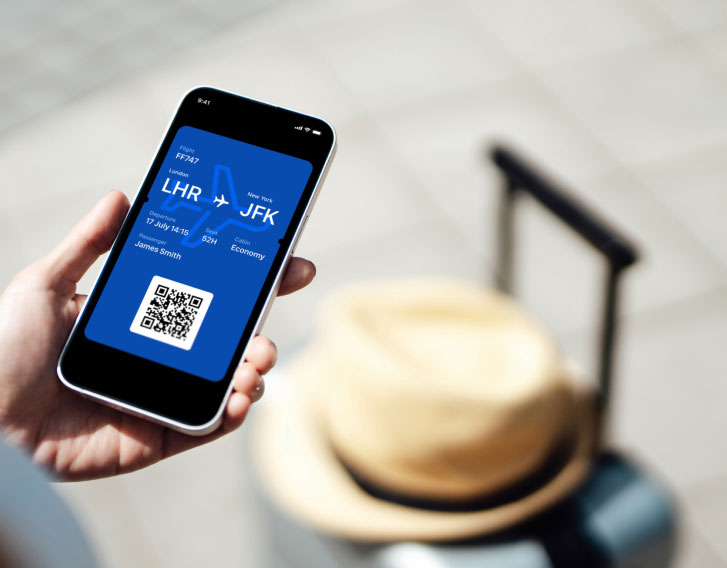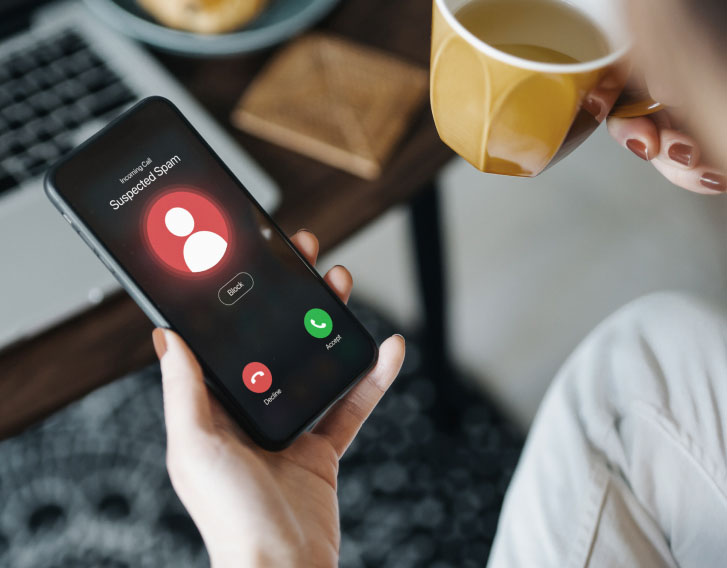Internet security
You're on Vacation – Is Your Personal Data Really Secure?
You've saved for months, finally headed to your favorite vacation spot, and now it's time to make sure everything's in order.
- Reservations confirmed
- Gas in the car Pet sitter booked
- Mail delivery paused
- Bags packed
- Passport in hand
- Home security system turned on
But wait…there's one more thing you're forgetting before you go!
Cybersecurity.
To help keep you and your family safe while you're away, you need to add a few more items to your checklist. Just because you're headed to paradise doesn't mean you can let your guard down. Since you won't be connecting devices to your secure home setup, you're more at risk when connecting to random spots along your travels.
Sadly, cybersecurity is often something people don't think about when they go on vacation, and it could end up costing them.
Most cybersecurity experts agree that approximately 20% of people traveling are subject to some form of cybercrime. Just as you would protect your physical belongings when away, the same approach should be applied to your valuable information.
Here are some easy tips to keep in mind as you plan and go on your next travel adventure.
Before you head out on your trip
It may be tempting to grab your suitcase and run out the door, but there are a few steps you should follow before you go.
- Downsize your devices – Become a digital minimalist and leave some of your non-essential tech at home. By bringing along only your must-have devices, you not only have fewer of them to lose, but you are also reducing the risk of cybercriminals hacking you.
- Update your mobile software – Make sure that your operating system(s) and software applications are current and updated with the latest security fixes. You should also ensure that you have downloaded reputable anti-malware software to every device you bring and that it is up to date. You may want to consider an AOL product like Norton Security Online, which offers security for up to five devices, including PCs, Macs, Androids, iPads and iPhones with a single subscription.
- Back up your informatio – Back up your personal data, such as contacts, photos, videos and other data, to another device or cloud service. You can utilize a service like Assist by AOL to help you with that task if you're not sure of what to do. With an encrypted backup in place, you can emerge less heartbroken from a malware attack, device malfunction or loss. Having a valid copy of all your data can make it easy to recover any lost information.
- Don't overshare your plans - It's very common for travelers to let everyone know where they're headed on social media sites. The problem with this type of sharing is that you create a security threat by signaling your location and making it easy for a criminal to know when you're not in your hotel room or at home. It's probably a good idea to stay silent on these sites for the entire trip and not disclose locations as you move around to prevent any potential risk.
- Consider remote wiping capabilities – If your device is lost or stolen, remote wiping can be configured to give you the ability to erase data and personal information stored on it. Since you're unlikely to recover the item, it's best to play it safe, have this on the device before you leave and protect your valuable data.
While you're enjoying time away
Once you get to your destination, the last thing you want is to get bogged down by the details. But taking just a few minutes at the start of your vacation could save you from a ton of hassles and headaches.
Here's what to do before you head out to the pool:
- Keep it locked and protected – Most devices come equipped with security settings that will enable you to lock the device using a PIN, fingerprint ID or facial recognition. Do this on every device you bring with you and keep them with you at all times, whenever possible. While traveling, change the PINs or passwords you regularly use. In the event that any of your devices have been momentarily misplaced or forgotten, this will be your first line of defense.
- Don't auto connect – Many people set their phones to find and connect to accessible Wi-fi networks. While this approach can help reduce your mobile data consumption, it can also expose you to significant risks. Change this setting so that your device must be manually connected each time you wish to access the internet.
- Avoid unencrypted Wi-fi networks - Ask your hotel about its security protocol before connecting to the internet. Be extra cautious when using internet cafes and free Wi-fi hotspots.
- Beware of Bluetooth – Just like your phone's automatic Wi-fi connectivity, Bluetooth connectivity can present problems. If your Bluetooth is left on, nearby assailants can connect to your phone and potentially hack into your device. Keep Bluetooth disabled as much as possible while traveling.
- Limit browsing to trusted sites – By sticking to well-known sites, you reduce the risk of having your information hacked. And if you do access email or financial sites, see if there's an encryption option to help prevent the threat of viruses or phishing scams.
- Limit or avoid using public devices – A public device has a higher risk of containing key logging software or malware. If this is your only option, you should assume that any data you input could be compromised. Keep track of any accounts you accessed and immediately change your passwords once you're back on a trusted device and connection.
- Utilize personal Wi-fi hotspots – It's not practical to think you won't need to get online during your trip to make financial transactions or stay in touch with loved ones. You can easily set up a mobile hotspot on your personal device to ensure a secure and private internet connection. Most hotspots will indicate how many devices are connected, so you can easily see if another device is connected that shouldn't be. Always turn off your personal Wi-fi when not in use.
Once you're back home
Now that you're all relaxed and have enjoyed being away from the everyday stress in life, it's time to check if any devices you brought with you have been compromised.
If you made changes to your devices while traveling, it should be safe to change them back to what they were before. You should also run a scan on those devices to ensure they are free of any malware or viruses.
As mentioned earlier, AOL has products and subscriptions to help you stay safe online. With NordVPN, you access public Wi-fi to connect to the internet safely and securely. Malwarebytes can also help defend against existing and emerging online threats.
Regardless of where you go or how long you're gone, it's more important now than ever to protect yourself when connecting devices to unknown sources. By following the tips provided in this article, you can help protect yourself against common issues that can happen to even the most vigilant traveler.
Stay safe online, and enjoy your vacation!
Published on 07/12/2023


